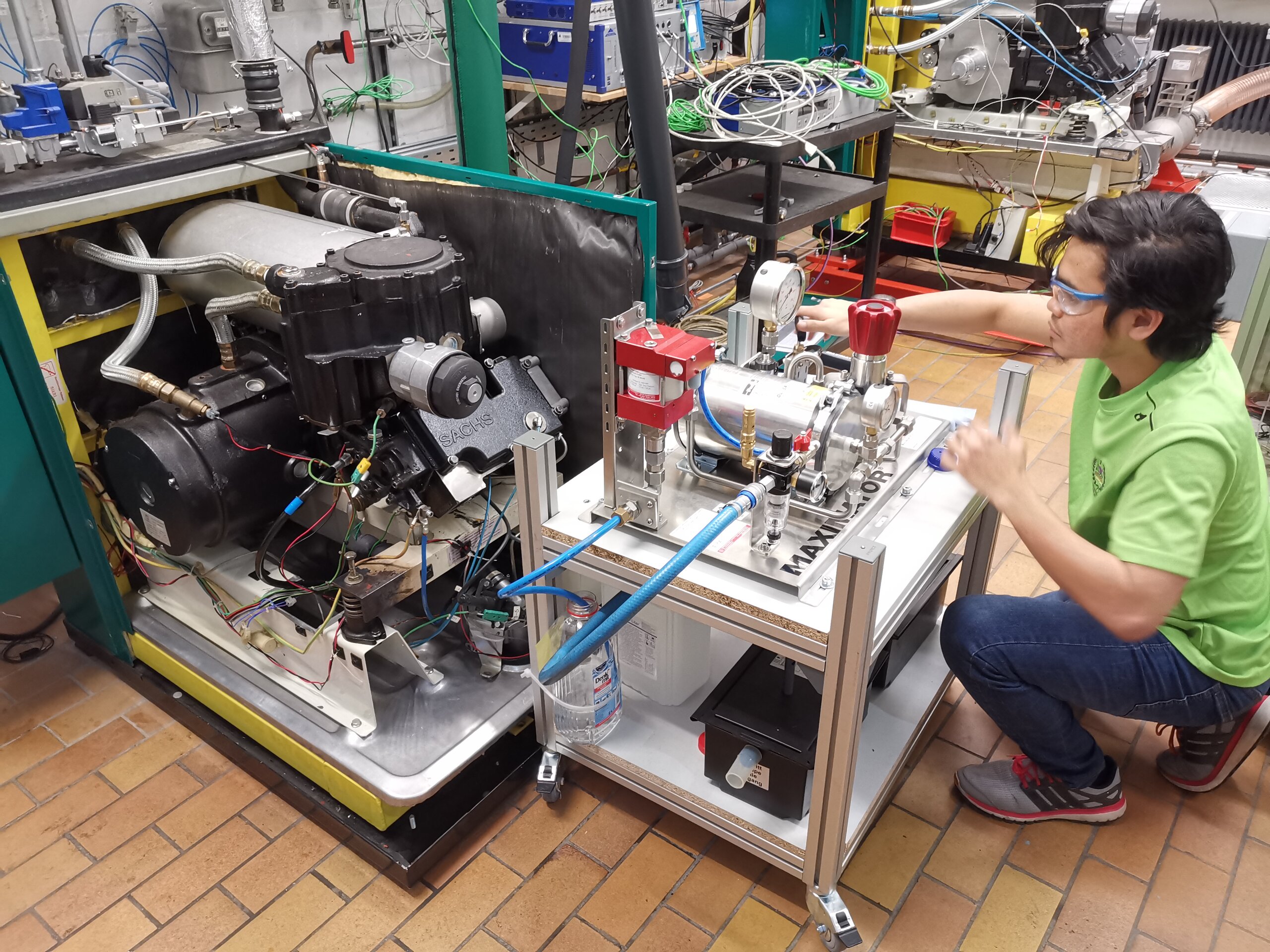
ReKra
ReKra
Regenerative fuels in use for electrified vehicles and low-emission mobility
The "ReKra" project is developing a combustion process for an internal combustion engine powered by renewable fuels. This is intended to enable CO2-neutral and locally emission-free vehicle operation in a hybrid electric vehicle. Charge dilution is to be used to achieve the highest possible efficiency with low emissions. The concepts to be compared here are, on the one hand, dilution by leaning and, on the other, by exhaust gas recirculation. Due to the delayed combustion caused by charge dilution and the high ignition energy requirement of diluted mixtures, a new ignition concept is being developed. With the aid of a hot surface inside a prechamber, spark ignition is to be supported and the heat value of the prechamber spark plug is to be adjusted in a load-variable manner. The developed ignition element is compared with the already established technology of the purged prechamber. The advantage of the newly developed ignition system is that no additional fuel supply with injection valve and peripherals has to be implemented. Since the combustion temperature decreases with charge dilution, primary measures such as supercharging and increasing the compression ratio can be implemented to increase efficiency without producing knocking combustion. In addition, other measures such as Miller timing or optimization of piston geometry can be taken to increase efficiency. In addition, systems for exhaust gas aftertreatment must be selected depending on the dilution concept; for example, the use of a three-way catalytic converter is only possible with stoichiometric operation. When using regenerative fuels in internal combustion engines, it should also be noted that their ignition and combustion behavior, as well as emission formation, can differ significantly from those of conventional fuels.

Current information about the project
The prototypes developed are continuously subjected to extensive experimental testing on the single-cylinder engine test bench. The two ignition systems are compared and ignition, as well as emission formation, are analyzed.
Last Updated
26.02.2021